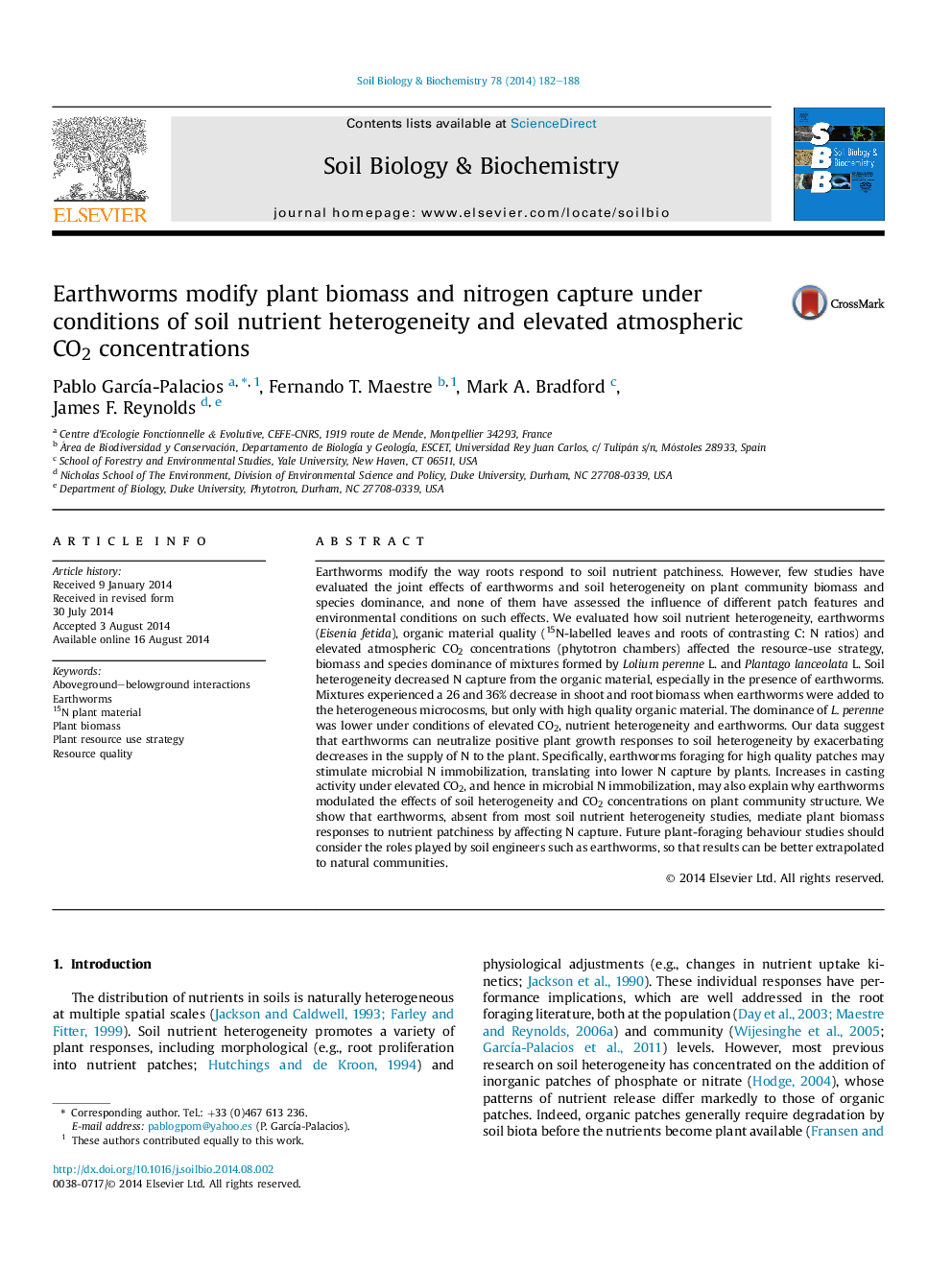| کد مقاله | کد نشریه | سال انتشار | مقاله انگلیسی | نسخه تمام متن |
|---|---|---|---|---|
| 2024583 | 1542606 | 2014 | 7 صفحه PDF | دانلود رایگان |

• Earthworms reduce plant N capture in heterogeneous nutrient conditions.
• Shoot and root biomass are decreased with earthworms and high quality nutrient patches.
• Earthworms modulate the effects of heterogeneity and CO2 on plant dominance.
• N immobilization may be promoted by earthworms foraging for high quality patches, reducing N capture.
Earthworms modify the way roots respond to soil nutrient patchiness. However, few studies have evaluated the joint effects of earthworms and soil heterogeneity on plant community biomass and species dominance, and none of them have assessed the influence of different patch features and environmental conditions on such effects. We evaluated how soil nutrient heterogeneity, earthworms (Eisenia fetida), organic material quality (15N-labelled leaves and roots of contrasting C: N ratios) and elevated atmospheric CO2 concentrations (phytotron chambers) affected the resource-use strategy, biomass and species dominance of mixtures formed by Lolium perenne L. and Plantago lanceolata L. Soil heterogeneity decreased N capture from the organic material, especially in the presence of earthworms. Mixtures experienced a 26 and 36% decrease in shoot and root biomass when earthworms were added to the heterogeneous microcosms, but only with high quality organic material. The dominance of L. perenne was lower under conditions of elevated CO2, nutrient heterogeneity and earthworms. Our data suggest that earthworms can neutralize positive plant growth responses to soil heterogeneity by exacerbating decreases in the supply of N to the plant. Specifically, earthworms foraging for high quality patches may stimulate microbial N immobilization, translating into lower N capture by plants. Increases in casting activity under elevated CO2, and hence in microbial N immobilization, may also explain why earthworms modulated the effects of soil heterogeneity and CO2 concentrations on plant community structure. We show that earthworms, absent from most soil nutrient heterogeneity studies, mediate plant biomass responses to nutrient patchiness by affecting N capture. Future plant-foraging behaviour studies should consider the roles played by soil engineers such as earthworms, so that results can be better extrapolated to natural communities.
Journal: Soil Biology and Biochemistry - Volume 78, November 2014, Pages 182–188